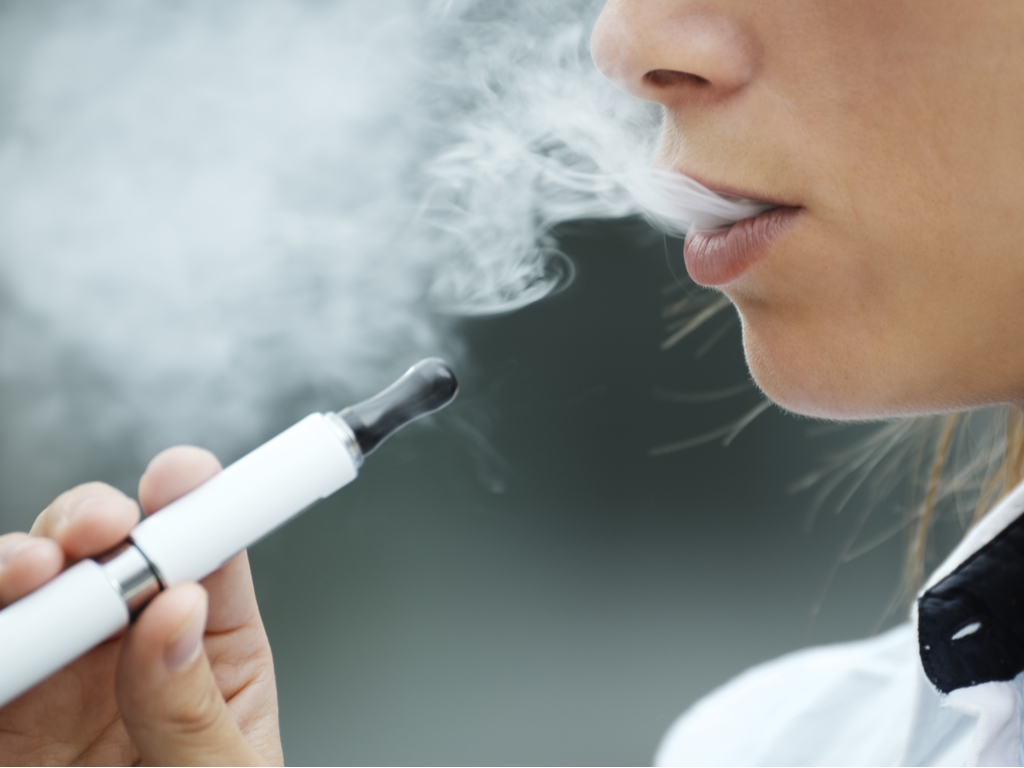Vaping linked with much higher risk of getting COVID-19
Teen and young adult vapers were up to 7 times more likely to get COVID-19, compared with non-vapers, the study found.

Vaping may increase the risk of getting COVID-19, at least in teens and young adults, a new study suggests.
The researchers analyzed information from more than 4,300 U.S. teens and young adults, ages 13 to 24, who completed an online survey in early May, according to the study, published Tuesday (Aug. 11) in the Journal of Adolescent Health. Participants answered questions about their cigarette and e-cigarette use, as well as whether they had experienced symptoms of COVID-19, undergone testing or were diagnosed with the disease from a positive test.
Among those tested for COVID-19, e-cigarette users were five times more likely to be diagnosed with COVID-19, and those who used both e-cigarettes and traditional cigarettes ("dual users") were seven times more likely to be diagnosed with COVID-19, compared with those who did not use e-cigarettes or traditional cigarettes.
In addition, dual users were nearly five times more likely to report experiencing symptoms of COVID-19 at the time of the survey, regardless of whether they were tested, compared with non-users.
"Young people may believe their age protects them from contracting the virus or that they will not experience symptoms of COVID-19," study lead author Shivani Mathur Gaiha, a postdoctoral scholar at Stanford University School of Medicine, said in a statement. But this study shows that people who vape, or use cigarettes and e-cigarettes face increased risks."It's not just a small increase in risk; it's a big one,” Gaiha said.
The researchers don't know what causes the link, but they have a number of hypotheses. Both smoking and vaping are known to damage the lungs and affect the immune system, which may increase the risk of developing a COVID-19 infection after exposure to the virus, according to NBC.
In addition, behaviors such as repeatedly touching your face and mouth to use an e-cigarette, or sharing vaping products, could also increase the risk of infection. Although about half of the participants said they were sheltering in place, "that doesn't mean they're not in the backyard with a friend sharing their vaping product," study senior author Bonnie Halpern-Felsher, a professor of pediatrics at Stanford University School of Medicine, told CNN.
Sign up for the Live Science daily newsletter now
Get the world’s most fascinating discoveries delivered straight to your inbox.
However, the study only found an association between vaping and COVID-19 infection, and cannot prove that vaping led to the illness. But the study did take into account a number of factors that could infuence participants' risk of infection, such as their self-reported compliance with shelter-in-place orders and the rate of COVID-19 diagnoses in their state, as well as their age, sex, race/ethnicity, body mass index and socioeconomic status.
The researchers hope their results not only provide a warning to teens and young adults about the risks of vaping, but also encourage the U.S. Food and Drug Administration (FDA) to further tighten regulations on e-cigarettes and how they are sold to young people.
Recently, lawmakers sent a letter to FDA commissioner Dr. Stephen Hahn urging the FDA to temporarily clear the market of all e-cigarettes for the duration of the COVID-19 pandemic, CNN reported. The letter cites the current study as evidence that vaping is a risk factor for COVID-19.
Originally published on Live Science.

Rachael is a Live Science contributor, and was a former channel editor and senior writer for Live Science between 2010 and 2022. She has a master's degree in journalism from New York University's Science, Health and Environmental Reporting Program. She also holds a B.S. in molecular biology and an M.S. in biology from the University of California, San Diego. Her work has appeared in Scienceline, The Washington Post and Scientific American.









